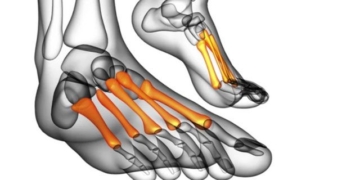Primary liver cancer, if left untreated, typically only allows for a survival extension of up to three months. However, by applying the technique of hepatic artery chemoembolization at Bach Mai Hospital in Hanoi, patients have been able to extend their lives by an average of 18 months, significantly longer compared to other methods.
 |
| Mrs. Tran Thi Le (57 years old, Group 11, Cau Dien, Tu Liem, Hanoi) was diagnosed with liver cancer in June 2004. Since September 2004, she has undergone three embolization procedures. Currently, Mrs. Le is still helping her children and grandchildren with cooking and shopping (Photo: N.Ha, TTO) |
Associate Professor Dr. Pham Minh Thong, head of the radiology department at Bach Mai Hospital, reported that a study involving 167 patients with hepatocellular carcinoma who underwent hepatic artery chemoembolization at the hospital showed an average survival time of 18 months, with the shortest survival being over 12 months, and no cases of treatment-related fatalities. Some patients have lived for more than five years.
In the past, surgery was considered the only treatment option, but it is rarely performed because up to 80% of liver cancer diagnoses occur when multiple tumors (or very large tumors) are present, with tumors invading other tissues…
In reality, the surgical treatment outcomes for hepatocellular carcinoma at major surgical centers in Vietnam still result in complications post-surgery, with limited additional survival time, averaging just over nine months.
According to Dr. Nguyen Quoc Hung, deputy head of the radiology department, the method of hepatic artery chemoembolization cannot be universally applied to all types of liver cancer.
Cancers that have metastasized from other sites to the liver (such as pancreatic cancer) or liver cancers that have spread into multiple masses or metastasized elsewhere… are not suitable for this treatment method.
Patients with jaundice due to bile duct obstruction, co-existing conditions such as renal failure, heart failure, or a history of allergies are also not suitable candidates. Patients with weak overall health need to undergo intensive medical treatment until stabilized before they can receive embolization.
This method is very appropriate for patients with relatively large tumors located near major blood vessels that cannot be surgically removed. For tumors measuring 10 cm or less that have not invaded the portal vein causing thrombosis, embolization will yield clear results.
The number of embolization sessions depends on the patient’s response to treatment. The cost for a single session of hepatic artery chemoembolization is approximately 3 million VND.
DO THI NGOC HA



















































